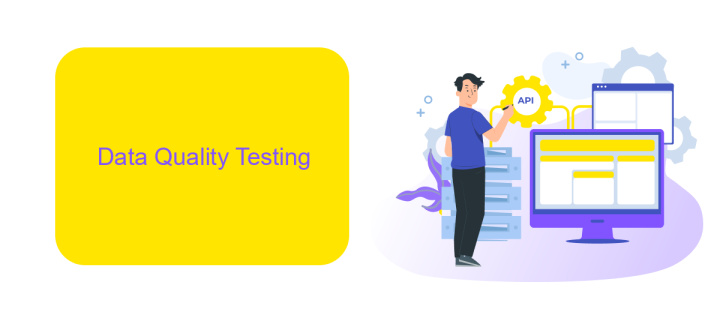ETL Data Testing
ETL (Extract, Transform, Load) Data Testing is a crucial process in data management, ensuring the accuracy and reliability of data as it moves from source systems to data warehouses. This testing verifies that data transformations are performed correctly and that the final data set is accurate, consistent, and ready for analysis. Effective ETL testing minimizes errors and enhances data quality.
Introduction
ETL (Extract, Transform, Load) Data Testing is a critical process in ensuring the accuracy and reliability of data as it moves from source systems to data warehouses or other storage solutions. The primary goal of ETL data testing is to verify that data is correctly extracted, transformed according to business rules, and loaded without any loss or corruption.
- Data Extraction: Ensures data is accurately pulled from source systems.
- Data Transformation: Verifies that data is correctly transformed as per business logic.
- Data Loading: Confirms that data is properly loaded into the target system without errors.
Effective ETL data testing involves automating the testing processes to reduce manual errors and increase efficiency. Tools like ApiX-Drive can facilitate seamless integration and automation, making it easier to connect various data sources and ensure that the ETL processes are executed flawlessly. By leveraging such tools, organizations can maintain high data quality and make informed business decisions based on reliable data.
Data Quality Testing

Data quality testing is a crucial aspect of ETL processes, ensuring that the data being transferred is accurate, complete, and reliable. This involves a series of checks and validations to confirm that the data meets predefined standards and business rules. Common tests include verifying data completeness, consistency, and accuracy across different stages of the ETL pipeline. For instance, data completeness checks ensure that no records are missing during the transfer, while consistency checks verify that data formats and values remain uniform.
Integrating tools like ApiX-Drive can significantly enhance data quality testing by automating many of these checks. ApiX-Drive allows seamless integration between various data sources and destinations, ensuring that data flows smoothly and accurately. It can also trigger alerts and notifications if any discrepancies are detected, allowing for quick resolution. By leveraging such tools, organizations can maintain high data quality standards, reduce manual intervention, and streamline their ETL processes.
Data Mapping Testing

Data Mapping Testing is a crucial step in the ETL process, ensuring that data is accurately and consistently transformed from source to target systems. This process verifies that each data field in the source system is correctly mapped to the corresponding field in the target system, preserving data integrity and consistency.
- Identify all data sources and target systems involved in the ETL process.
- Create a comprehensive mapping document outlining the source-to-target field mappings.
- Validate the mapping document against business requirements and data models.
- Use automated tools or scripts to compare source and target data, highlighting discrepancies.
- Perform sample data verification to ensure the mappings are correctly implemented.
- Review and update the mappings periodically to accommodate changes in data structures.
Utilizing integration services like ApiX-Drive can streamline the data mapping process by automating data transfers between various systems, reducing manual errors. ApiX-Drive supports a wide range of applications and databases, ensuring seamless data flow and accurate mapping, ultimately enhancing the reliability of your ETL process.
Data Transformation Testing

Data Transformation Testing is a crucial step in the ETL process, ensuring that data is accurately transformed from its source format to the target format. This phase involves validating the transformation logic, checking data integrity, and ensuring that the transformed data meets business requirements.
To effectively test data transformations, it is essential to have a robust testing framework in place. This includes defining test cases, creating expected results, and comparing them with actual outcomes. Automated testing tools can significantly enhance this process, providing faster and more reliable results.
- Define clear transformation rules and logic.
- Create comprehensive test cases for all transformation scenarios.
- Use automated testing tools to validate transformations.
- Compare source data with transformed data to ensure accuracy.
Integrating services like ApiX-Drive can streamline the data transformation process by automating data flows between different systems. ApiX-Drive allows for seamless integration and data transfer, reducing the risk of errors and ensuring that data transformations are executed smoothly and efficiently.


Conclusion
ETL Data Testing is a critical component in ensuring the accuracy and reliability of data transformations and integrations. By rigorously validating each stage of the ETL process, organizations can identify and rectify errors early, thereby maintaining data integrity and enhancing decision-making capabilities. This process not only safeguards the quality of data but also optimizes the efficiency of data workflows, leading to more robust and trustworthy data systems.
Moreover, leveraging tools like ApiX-Drive can significantly streamline the integration and testing processes. ApiX-Drive offers seamless connectivity between various data sources and destinations, simplifying the configuration and monitoring of ETL pipelines. By incorporating such advanced integration services, businesses can automate routine tasks, reduce manual intervention, and ensure continuous data quality. Ultimately, a well-implemented ETL testing strategy, supported by reliable integration tools, is indispensable for any organization aiming to harness the full potential of its data assets.
FAQ
What is ETL Data Testing?
Why is ETL Data Testing important?
What are the common challenges in ETL Data Testing?
How can automation help in ETL Data Testing?
What are the key components to test in an ETL process?
Apix-Drive is a universal tool that will quickly streamline any workflow, freeing you from routine and possible financial losses. Try ApiX-Drive in action and see how useful it is for you personally. In the meantime, when you are setting up connections between systems, think about where you are investing your free time, because now you will have much more of it.

